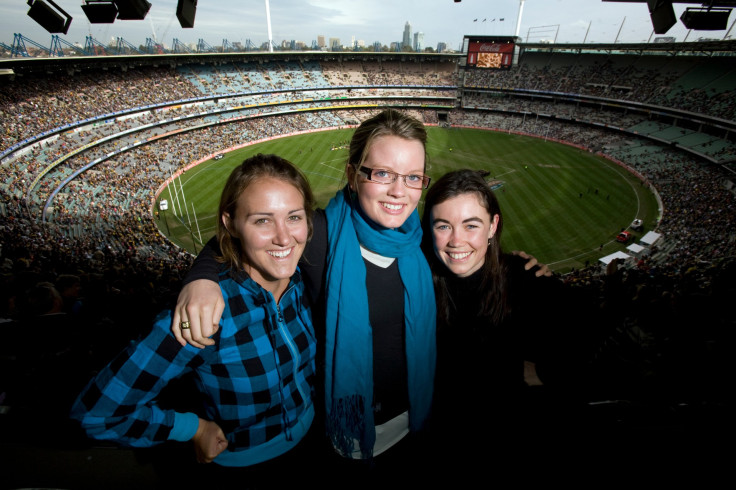Australia Happiest Industrialized Nation In the World, Received Well-Being Boost From Strong Economy

Australia was ranked as the happiest developed nation in the world thanks to their robust economy, according to the Better Life Index.
The index, which compared more than 30 economically developed countries on well-being criteria, including income, health, safety and housing, also found a longer life expectancy of 82 years in Australia and more than 73 percent of people between 15 and 64 holding paid jobs.
This put the country as the happiest for a third year. The top five also included Sweden, Canada, Norway and Switzerland.
Top 10 Happiest Countries List
- Australia
- Sweden
- Canada
- Norway
- Switzerland
- United States
- Denmark
- The Netherlands
- Iceland
- United Kingdom
The survey compiled by the Organisation for Economic Co-operation and Development (OECD) saw a strong international interest in Australia's natural resources in the past two decades, which boosted the country's economic growth. The employment rate in Australia, at 73 percent, is considerably higher than the average rate for all the countries surveyed, which is only 66 percent. On the other hand, there is a huge gap between the rich and poor in Australia: the top 20 percent earns six times more than the bottom 20 percent. Nevertheless, when all factors were considered, the OECD still rated the country's economy as top-end.
When it comes to health, the country's life expectancy is two years higher than the OECD average of 80 years; Australian women can expect to live 84 years, while men average 80 years of life. The longevity makes sense in one of the most adventurous countries in the world, that offers lots of great outdoors activities and must-see nature destinations like the Great Barrier Reef and plenty of beaches. The air and water quality in the country is also top-notch.
"The level of atmospheric PM10- tiny air pollutant particles small enough to enter and cause damage to the lungs — is 14 micrograms per cubic meter, considerably lower than the OECD average of 21 micrograms per cubic meter," the index said. "Australia also does well in terms of water quality, as 91 percent of people say they are satisfied with the quality of their water, higher than the OECD average of 84 percent."
Another criteria for overall well-being is a country's sense of community. Nearly 94 percent of Australians surveyed said they could rely on someone in time of need; the average OECD was 90 percent.
The United States missed the top five, but came in at a close sixth place. The average life expectancy in the U.S. is 79 years, while the water and air quality also performed higher than the average. The index also found that women in the U.S. completed their high-school education more than men: 90 percent of women compared to 88 percent of men. Girls outperformed boys by three points in reading literacy, math, and science, based on the OECD's Programme for International Student Assessment (PISA). In terms of household income, the gap is wider between the rich and poor compared to Australia's. The top 20 percent of the U.S. population earns nearly eight times more than the bottom 20 percent.



























